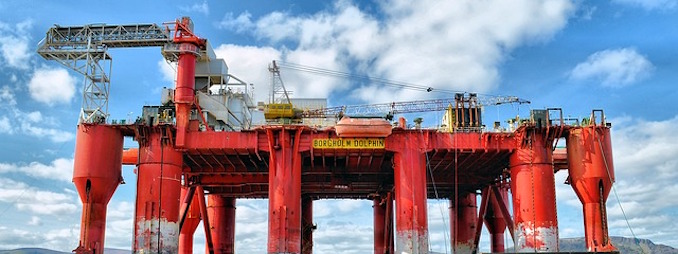There are many things that make Toronto a vibrant and exciting city, from its incredible community to its reputation as a real hub for great art and culture. However, the fact that the area is home to a wealth of fantastic businesses operating in a range of sectors must undoubtedly play a part too. In fact, you may not realize it, but Toronto has a key role in supporting the Canadian economy as a whole, with the region making a significant contribution to the country’s GDP.

The city’s status as the second largest financial services centre in North America is bound to help in this regard, while Toronto’s exciting tourism sector is also thought to bring in close to $9 billion alone. Incredibly, if some reports are to be believed, at least 5% of that can be attributed solely to the far-reaching influence of one of our city’s most famous sons, Drake.
However, while there are clearly a range of factors behind Toronto’s continued success, on a nationwide level there are generally a handful of sectors which are arguably playing the biggest role in driving the fortunes of Canada as a whole.
The likes of agriculture, manufacturing and technology all have an impact, but arguably one of the most famous contributors is the Canadian oil and gas industry. In fact, you could go so far as to say that the sector is providing the vital fuel needed to fire the country to future success.
A major player
The figures related to Canada’s standing in the oil and gas industry are quite staggering to the uninitiated. According to the Canadian Association of Petroleum Producers (CAPP), the country is home to the world’s third-largest oil reserves, trailing behind only Venezuela and Saudi Arabia. It is also the fifth-largest producer of natural gas on the planet, as well as the sixth largest producer of crude oil.
It is estimated that Canada’s reserves are home to a total of 170 billion barrels, the majority of which can be derived from oil sands. The oil and gas industry is believed to play a role in 12 of the 13 provinces which make up Canada, with Alberta arguably leading the way as both a producer of the commodities and a home to significant deposits of oil sands.
Recent estimates from CAPP have predicted that total oil production in Canada may well reach 5.6 million barrels per day by 2035, a figure which is around 33% higher than the rate recorded just last year. It is thought that Canada’s energy sector – including the production of oil, gas and electricity – accounts for around 10% of the country’s GDP.
Fundamental to the economy
Considering these incredible figures, it seems fairly evident why oil and gas production is bound to have a major impact on Canada’s economic performance. As this analysis of the country’s economy outlines, oil is regarded as a fundamental factor in the Canadian GDP.
In fact, its influence is so key to the country’s success that traders looking into the Canadian Dollar are advised to ensure they are aware of all of the latest developments in the industry, ranging from current levels of supply and demand to any major news of mergers or acquisitions involving the sector’s biggest players. The same source even suggests that such individuals should also keep tabs on any meetings involving the Organization of Petroleum Exporting Countries – or OPEC – as the body can make significant decisions which can impact oil prices.

In sync
The Concordian – the newspaper of the Concordia University community – outlines how oil’s importance to the economy has meant that the price of the commodity has been generally in sync with the fluctuations in the Canadian Dollar for at least a decade. Some have attributed the cause to a rise in prices along with the rising demand from other major countries, with the US in particular being a major importer of oil produced in Canada.
However, speaking to the newspaper, Concordia student Daniel Horen Greenford also warned that the dependence on oil did come with pitfalls and had made the Canadian economy “volatile”. A drop in oil prices around both 2014 and 2015 led to major unemployment in areas like Alberta, with banking giant CIBC outlining in a report published around that period that the decline would cost many regions billions in lost revenues. The economists behind the paper added that the drop was “an unprecedented development for the Canadian economy”.
Looking to the future
The industry has taken steps to address the issues and problems seen in the past, however. According to a new report from petroleum consulting company Sproule, companies in the industry have worked to become “leaner, more innovative and competitive”, with many looking to use cash flow to consolidate their position.
However, the consultancy added that while that has been an understandable trend in recent times, there may have to be a rethink on such strategies in the future. Speaking to JWNEnergy.com, Sproule’s senior vice-president Nora Stewart said there was a need for a balanced approach which considers different products and opportunities in both the short and long term. Put simply, diversification could be key.
A major part of our lives
While Toronto is home to a rich and diverse economy, it is an inescapable truth that the economic fortunes of Canada can be clearly linked to the production of both oil and gas and taking advantage of the incredible resources that our country is home to.
The industry is undoubtedly a significant part of life in Canada and while it offers many positives, any drop in prices can also mean some negatives. Arguably, the key issue now is to ensure that both the industry and the country are in the right position to thrive in the coming months and years.
Whatever the future holds for our country, it is more than likely that the oil and gas industry will have a fundamental role to play.

